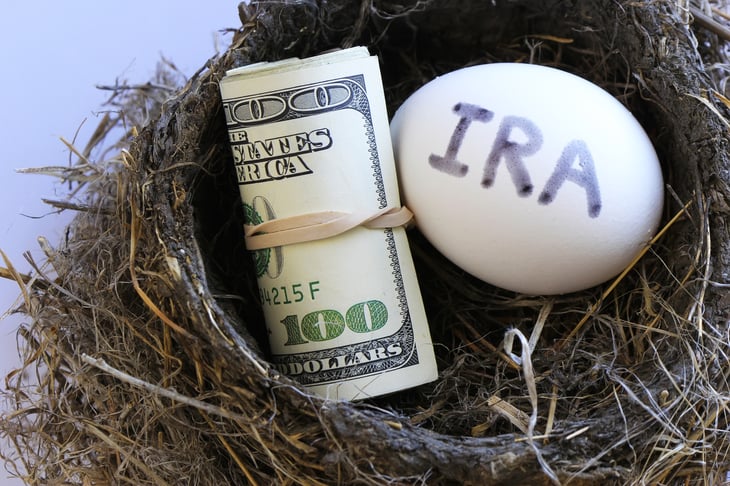
Millions of savers overlook one incredibly underrated way to add extra oomph to their efforts to build a nest egg.
The health savings account available to folks enrolled in a high-deductible health insurance plan is a great place to save for today’s medical expenses. But it might be an even better place to stash cash for your golden years.
Here are some key reasons to consider using an HSA to save for retirement.
1. It’s triple tax-advantaged

A health savings account’s huge selling point is the fact that it is triple tax-advantaged:
- You get a tax deduction during the year of the contribution.
- The money grows tax-free.
- You withdraw the money tax-free when it’s used for qualified health expenses.
In essence, if you use HSA money to pay for health care expenses, it’s never taxed. Never.
It’s tough to think of any other savings vehicle that offers such a powerful combination of tax incentives.
2. It can be a back-door IRA

This is one of the most overlooked — and misunderstood — advantages of the HSA. Many people think the HSA must be used to pay for medical expenses.
In fact, once you reach the age of 65, you can withdraw your HSA funds for any reason. Just as with a traditional IRA, you will pay income taxes on the withdrawal at that point. However, you will not pay any penalties. As the IRS states in Publication 969:
“Additional tax. There is an additional 20% tax on the part of your distributions not used for qualified medical expenses. Figure the tax on Form 8889 and file it with your Form 1040 or Form 1040NR.
Exceptions. There is no additional tax on distributions made after the date you are disabled, reach age 65, or die.”
So if you use the money for qualified medical expenses, it’s never taxed. If you use it for other purposes during retirement, you only have to pay the same type of taxes you would on an IRA withdrawal.
However — and this is crucial to note — bills have been introduced in the U.S. House of Representatives in recent years that would eliminate the ability to withdraw money for nonmedical reasons without paying a penalty. Attempts to change the law have occurred in 2019 and 2022, according to CNBC.
Over the years, the federal government sometimes has changed longstanding rules related to retirement savings and income, disrupting the financial plans of retirees who were counting on these rules to remain unchanged.
If the law shifts so that seniors with HSAs no longer could withdraw money penalty-free for nonmedical expenses, it would make the HSA considerably less valuable as a retirement account. So, consider yourself forewarned.
3. There’s a sneaky way to avoid those taxes

If the idea of paying taxes on nonqualified withdrawals during retirement rubs you the wrong way, there is something you can do to eliminate such fees. But it probably only works if you plan ahead, and if you are a super-saver who delays using HSA funds for many years.
Some people who open an HSA account do not use the funds to pay for current medical expenses. Instead, they leave their HSA money alone, and dip into their taxable accounts instead to pay for annual medical expenses out of pocket.
Why on earth would you do that? Because it allows the HSA money to continue to compound tax-free for years, and hopefully even decades.
So, every time these super-savers rack up a new medical expense, they write a check to cover the bill. Then, they take their medical receipts and quietly file them away.
As it turns out, you can ask for reimbursement of your medical expenses at any point during your lifetime. According to IRS Publication 969:
“You are permitted to take a distribution from your HSA at any time; however, only those amounts used exclusively to pay for qualified medical expenses are tax free.”
The key phrase, of course, is “at any time.” So, as long as your expense was a qualified medical expense — and you did not receive reimbursement or a deduction for it previously — you’re golden, even if you make a withdrawal to reimburse costs incurred decades earlier.
While news outlets such as Forbes have written about this strategy, it remains largely under the radar. You can find out exactly how to cash in those medical expenses many years down the road by reading the rules at the IRS website. Scroll down to Q&A-39 to learn all about it.
Theoretically, you could decide to buy a car when you turn 65 and fund much or all of the purchase by using thousands of dollars in tax-free HSA money. To do so, you simply have to make sure you can produce those receipts from yesteryear.
It’s a pretty neat — and totally legal — trick.
4. It helps trim your medical costs today, as well in the future

Everyone knows health care costs continue to soar. An HSA can help mitigate some of this financial pain by providing you with an upfront tax break that returns a modest amount of such costs to your pocket.
And you get that tax break now even if you don’t actually tap your HSA funds until years into the future. So, the HSA remains a great way to trim ever-growing health care costs, both now and in retirement.
5. It can be a great estate-planning tool

When you die, your health savings account does not travel with you to the great beyond. Instead, it remains behind on this earthly plane and can be used by loved ones to make their lives better.
If you name a spouse as a beneficiary, he or she will inherit the HSA and will be able to use it just as you did, with a right to tax-free distributions for qualified medical expenses.
If you leave the money to someone else, it will be distributed to your heirs and will be fully taxable, however.





Add a Comment
Our Policy: We welcome relevant and respectful comments in order to foster healthy and informative discussions. All other comments may be removed. Comments with links are automatically held for moderation.